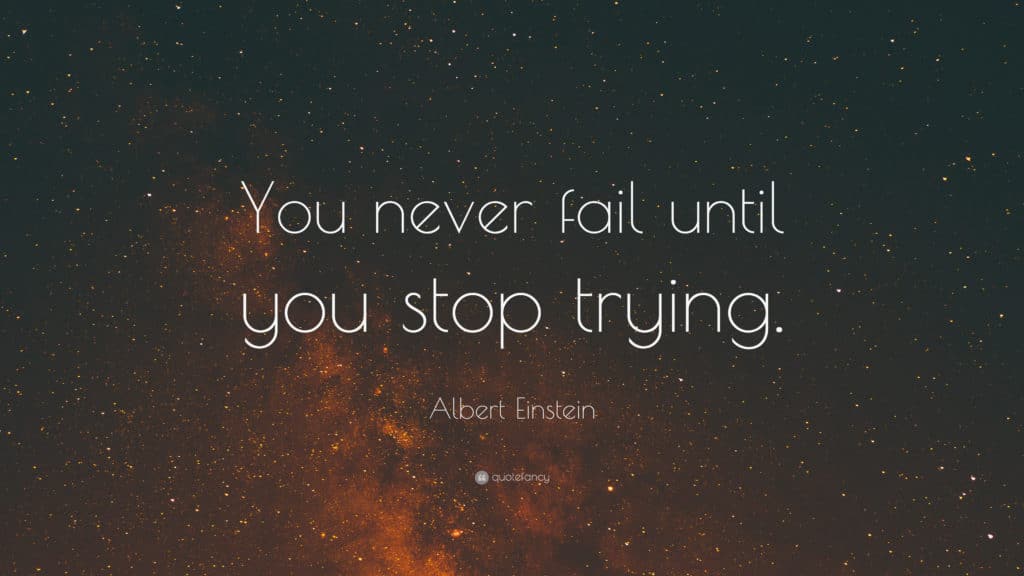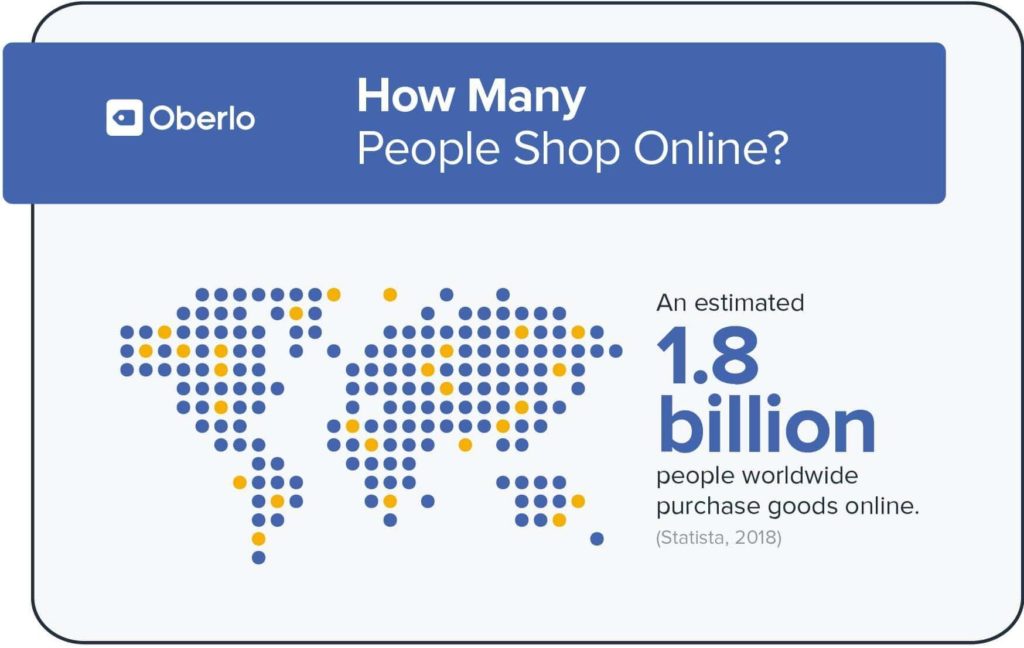Being an entrepreneur is hard. Every single day there are new challenges filled with what can feel like a never-ending list of things to get done. The importance of knowing how to manage your time and prioritize all of your daily, weekly, and monthly tasks is key to making progress.
Here are some stats and facts to know about entrepreneurship:
- The top motivation for someone to open a business is that they’re ready to become their own boss.
- 69% of entrepreneurs start their business at home.
- $10,000 is the average startup capital.
- 82% of startup funds come from the entrepreneur or their family and friends.
Personally, I don’t think there’s a clear path to running a profitable business. There are methodologies and practices you can put in place, but to say that there is one clear path that will work for everyone just isn’t true.
In today’s blog, I’ve decided to curate various blog posts I’ve written and put them into one place to provide more insight on the following:
- Going from good to great with your entrepreneurial journey
- Figuring out how to embrace failure
- Ensuring that you are doing what you’re truly passionate about
- Being okay with not knowing everything but not okay with not trying
- Pushing to make progress over making everything perfect and much more
Let’s get going…
Put Yourself in the Right Mindset
If you’re not dedicated and motivated, you’re never going to make headway, even in something as vital as finding your passion in life. As such, it’s important to put yourself in a good headspace. Be eager to learn, grow, and take on all new opportunities, including things you wouldn’t think you’d like, from hiking to taking a community leadership role.
Say, for example, you’ve never been interested in the consumer products space. This is fair – designing, creating, and launching new ideas can be an uphill battle – but there’s significant room to grow for the right products at the right time. If you have a good idea of an item you’d love to see on the shelves, fear and worry shouldn’t be your dominating emotions when weighing the pros and cons.
By keeping yourself open to possibilities, rather than shutting things down before you even try, you’re more likely to make meaningful progress in any area.
Find Out What You Don’t Want
As individuals, each one of us has different proclivities – and, as such, certain things that will never click. Whether dealing with children isn’t for you or speaking in public makes you tremble, there are plenty of ideas or opportunities that simply won’t be enjoyable.
In order to find out what you do like, it’s also important to understand what you don’t like. There are no limits here; anything from a dislike of red meat to anxiety when leading projects can be incorporated in your quest for your passions. With so much potential out there, taking into account any level of dislike, no matter how minor or seemingly inconsequential, can help you focus your attention in the right places.
While exploring your motivations and opportunities, be sure you’re not attempting to force a square peg into a round hole. It’s okay to have weaknesses and it’s okay to admit that a particular concept, topic, or idea isn’t right for you and your overall objectives.
Get Used to Failure and Rejection
Failure is often the price of success. Many times, it takes trial and error to get your product or service just right. And even then, you may find yourself facing setbacks that keep you from success.

Some of the world’s most famous names failed multiple times before they ever struck it big. Warren Buffett was rejected by Harvard Business School when he was 19 years old, which led him to Columbia University and towards two investors who helped to shape the model for Berkshire Hathaway. Steve Jobs’s first Apple development, the Apple I computer, sold just 175 units, and he was eventually kicked out of his own company. If he were alive today, experts believe he’d be richer than Bill Gates.
But just as failure doesn’t automatically disqualify you from entrepreneurship, instant success doesn’t mean you were born for this journey either.
At some point, you’ve got to be honest with yourself about your skills and abilities to grow as an entrepreneur. A few early successes might not prepare you for future challenges. Likewise, many entrepreneurs don’t have what it takes to fail over and over with nothing to show for it.
If you have a hard time hearing no or bouncing back after rejection, you probably won’t fare well as an entrepreneur. But resilience is something you can learn and develop over time, if you’re willing to make the effort.
Embrace the Journey
Nothing is easy in life, and that includes finding what calls you.
When you aren’t sure where to start in exploring your passion, it’s only natural that the process of doing so will involve a journey of sorts. You may have some trial and error, some false starts, or even some complete mistakes on your path to finding what works for you. However, it’s important to realize that this is part of the process, and how you approach it can have a direct influence on your success.
Too many people wait for that “eureka” moment, that strike of inspiration that changes the course of your future. Unfortunately, this is largely a Hollywood concept. Real life is far more confusing and complex, and it’s okay if your quest for passion is slow and steady rather than fast and exciting. Instead, embrace the journey and be willing to accept that your quest is yours and yours alone, and likely can turn out very differently than you originally envisioned.
Know Your Superpower
Assessing your strengths and weaknesses is important to growing any business because you can keep doing what you’re good at, and you can delegate or hire help for the things you’re not so great at.
This isn’t about being embarrassed by your shortcomings, but just spending your time on the things that will make a positive impact on your business and help scale it. More specifically, knowing that ONE thing you do really well is going to take you to greater heights than trying to be really good at a lot of small things.
In fact, here’s a snippet from an earlier blog post on How to Make Your Dreams a Reality:
Part of being a good entrepreneur involves staying humble too. Even if you have business degrees, decades of on-the-job experience in the field you are attempting to enter, and advice from a great mentor, there will always be new things to learn and new challenges to overcome.
To truly be effective, you have to accept that you don’t know everything and you never will. Every day is a learning experience – and unless you’re willing to learn all of the many different ways there are to swim, you’re going to sink.
Approach situations with humility, and take every event that arises as a chance to grow. Don’t bristle at criticisms or feedback from others, either. Instead, carefully process the advice you’re given, and use your reasoning skills to determine whether taking action is the right decision.
Achieving your dreams as an entrepreneur takes significant time and effort, but that doesn’t mean that your aspirations are out of reach. The right knowledge, awareness, understanding, patience, and humility can make all the difference in preparing for you for the journey ahead. It’s always possible to make your dreams a reality – but you’ll never know for sure unless you try.
Do What You Love, Love What You Do
When you’re doing what you love, you’re not working for the weekends or for your next vacation. You’re in the long game of making your work the best you can. And as I wrote in a previous blog post, Key Lessons for Entrepreneurial Success:
When you love what you do, it becomes less about the destination but more about the journey.
One of the things I learned early on in my career was that making decisions based on money would result in loss of passion, and ultimately make me unhappy.
Being truly passionate about what you do means that you have a deep love for your craft and you’re willing to do what it takes to make your vision a reality.
Next, embrace failure, and make sure it is seen as a stepping stone to success.
It can be easy to let the fear of failure hold you back from really pursuing your dreams. I always like to say: “get comfortable with feeling uncomfortable.” It’s in those moments that you start to experience growth, which in turn, fuels your chances of success.
Change your perspective on failure and instead, embrace it and learn from it. Know that failure is not the opposite of success but it’s a part of it.
Be Committed to Investing in Marketing
The world is on the Internet, and over 87% of purchasing decisions begin with online research. While there is likely an audience for your idea, there is also too much competition for you not to be strategic in your marketing efforts. Make sure you understand your target market (which you will have identified in your business plan) and think of unique ways to get in front of them.

Also, note that not every audience actively uses social platforms in the same way. Know where your demographic lives online and how they behave. It will inform how you spend money and provide you with a higher return on investment. SEMRush has a social media toolkit that can help you provide tailored content to your followers.
Be sure to tie offline marketing efforts into your overall strategy. As a small business, it’s important to concentrate on your local market in the beginning, including using local SEO. People make purchasing decisions based on how a product or service will integrate into their everyday life.
Traditional marketing techniques will allow you to connect offline with customers who will be more likely to genuinely connect with your business and, in turn, help drive sales — 92% of people trust referrals from people they know.
Balance Working Hard With Mindful Resting
Being self-employed does have its perks; yet, on the other hand, you also have to make sure you are hustling every single day to bring in money. Truth is, it isn’t for everyone either and that’s okay.
But for those who are ready to take that jump into entrepreneurship, know that there will be times where the weekdays and weekends will begin to blend in together. In order to keep up, consider the following:
- Make time to disconnect every single day. This could be 1-2 hours for a workout, for lunch with a friend, or even for reading.
- Go to bed at a reasonable time. Be aware of what can wait until tomorrow vs. what has to be done today. Having a restful night of sleep will help you feel more refreshed the next day.
- Prioritize. Running your own business can feel like you have way too many things to do, and not enough time or manpower. However, this is where the power of prioritization comes in. Focus on the important items that will help move the needle for you first – everything else should come in secondary.
- Outsource. You can’t be the expert in everything when it comes to running a business so outsource what you can (e.g. bookkeeping, taxes, copywriting, etc.) Fiverr can be a great place to find qualified freelancers to help free up some of your time.
Wrapping It Up
One of the biggest things that has contributed to my progress with my entrepreneurial journey is the fact that I’m 100% accountable for what I take on. In other words, I don’t depend on others to dictate my path. I am constantly paving the way for myself because the vision and goals I put in place for myself are there to fuel my passion for what I do.
Setting goals in all that you do will help you:
- Have a clear vision of what the destination looks like
- Break up the path to achieving your goals into smaller steps
- Hold yourself accountable
- Design a roadmap that will help guide you
- Stay focused on making progress
In addition to this, being self-aware has been something that I take very seriously because it enables me to put my ego aside, be reflective, and really figure out what I’m actually good at. When it comes to entrepreneurship, I know that I have to keep learning and growing. I can’t foresee myself getting to a point where I will be 100% satisfied or complacent. If I do, that just means I’m not really pushing myself and tapping into my fullest potential.
Disclosure: Please note that some of the links above are affiliate links. I only recommend products and services that I use and stand behind, and if you decide to try them, I will earn a commission at no cost to you. Doing so helps me run this blog and provide free content for you, my readers.





